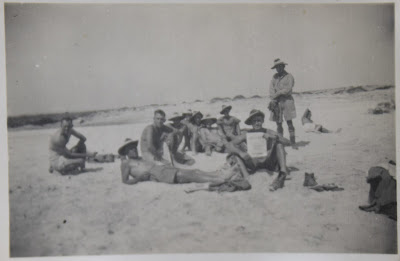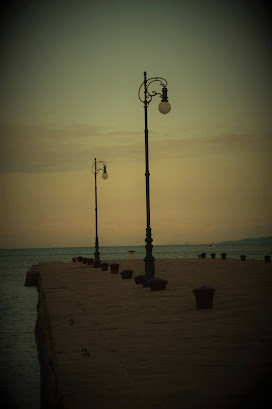You cannot find two things on the internet about Aloysius Stepinac that do not contradict one another and I almost feel sorry for the poor man that Pope John Paul II ever agreed to raise him to the altars, because there has been no peace about him in heaven or earth since.
The preface to this fascinating book, published in 1987, did not fill me with confidence. ‘There is only one main primary source available to the ordinary researcher,’ Alexander commences rather dismally, ‘…two other sources exist but are not available.’ Another source ‘is not always a reliable witness’, a further source requested by the author was ‘refused’ and several others suffer from ‘tendentious’ tendencies or came from representatives of the foreign press who may have had ‘little knowledge of Yugoslavia.’
I know that this is not the reason Pope Francis put Stepinac’s canonization on hold and upset everybody, but it’s tempting to suggest that Pope JP2 could have done his research better (had he been able to). As an example, although the Pope allowed the archbishop to bypass the two miracles required for sainthood by proclaiming him a martyr, the communist government in fact looked after him comparatively well, precisely because they did not wish martyrdom to occur. ‘He was never ill-treated…He was imprisoned in decent conditions, in a double cell with a third neighouring cell arranged as a chapel where he celebrated mass every day. He had books and writing materials and was allowed visitors from time to time.’ He was well fed, and his sister visited him once a month, bringing with her whatever he needed.
To have been archbishop under the Ustasha government seems to have been as confronting an experience for Stepinac as it would conceivably have been for us. Whilst condemning the atrocities against Jews and Serbs, he nevertheless kept up a running tirade against a theoretical communism, so that I had to reread several of his passages in order to understand what he meant. (Stepinac had a tendency to overwrite.) His unfortunate references to returning the ‘schismatics’ (the Serbs) to the ‘true faith’ (Catholicism) are typical of his time, as is the European anti-Semitism he gradually sloughs off as the war progresses. The elegant and conciliatory language of his letters towards Ante Pavelić, leader of the Ustasha, renders his refusal to break from them (on the pretext of not being able to help people if he had) more poignant.
‘Two things stand out,’ writes Alexander. ‘He feared communism above all; and he found it hard to grasp that anything beyond the boundaries of Croatia, always excepting the Holy See, was quite real.’
In 1945, as Pavelić fled Zagreb and Stepinac, grim-faced, awaited the arrival of the Partisans, there were so many accusations and counteraccusations between the two sides that it is possible to believe whatever one wants.
‘Objective history will show that the representatives of the Catholic Church in Croatia never betrayed their callings and that the mistakes of a few priests are trifling beside what is happening…[under] organized atheism’ – Stepinac.
‘Some of his ideas about the role of the Catholic Church in recent happenings were basically incorrect’ – Partisan response to the Catholic Bishop of Šibenik.
‘Only individuals personally and directly responsible for crimes would be brought to justice’ – communist policy towards relations between the state and the Catholic church.
‘I dare to say that the Croatian people will refuse to accept any regime either of the far left or the far right which does not completely respect its more than thousand year old Catholic tradition’ – Stepinac.
‘We want to create a great community of South Slavs in which there would be both Orthodox and Catholic, who must be closely linked with all the other Slavs. The Orthodox are nearer to this than the Catholics’ - Tito.
The mix of these strong and flawed personalities created a huge mess. Certainly, in not breaking with the Ustasha government when he was advised to, and in launching himself into a head-on collision with the communists after the war, Stepinac gave Tito enough rope to hang him with. Yet, as Tito correctly pointed out, Stepinac did not react to the slaughter of hundreds of thousands of Serbs by the Ustasha with anything like the same energy as he uncompromisingly defended the Catholic Church against communism.
My own feeling is that the Partisans, whose attacks on the church so upset
the archbishop after the war, were traumatized and angry. They had
been witnesses of the Ustasha genocide against
the Serbs, Jews and Roma. Many were Serbs and Jews themselves and, as other
writers have observed, revenge was in the air. That the liaison between the Catholic
Church and the Ustasha had compromised the church, Stepinac does
not seem to have appreciated. Like many left-brained men, he was absorbed in his present crisis: the communists were persecuting his church because they were atheists, and it was up to him to ensure its survival.
Here lies the moral hurdle. Why is the survival of an institution more important than people? Shouldn't Stepinac, as a Christian leader, rather have proclaimed national shame and mourning for those whom the Ustasha had killed? To read about their crimes is to be physically sick, yet their monstrous leaders were not brought to justice after the war, and through a series of Western and Catholic interventions, were able to begin new lives in the Americas. How will canonizing Aloysius Stepinac help Croatia face up to its unsavoury past?
In any case, a saint must first be a man. What does The Triple Myth reveal about Stepinac? Within its pages, he appeared to me highly intelligent but rule-conscious to the point of autism. (You will forgive me. I am a Special Education teacher.) For example, I was intrigued by the story of his fiancée. As a young man engaged to be married, Stepinac informed her that, rather than risk lewd remarks in the event of being seen with her in public, he would correspond. He added that he only intended to write infrequently, and the ensuing letters contained his rules for her to be a good Catholic wife. The girl broke off the engagement. Stepinac did what he believed to be right but did not anticipate her emotional reaction. Likewise, he is pious and devoutly practical but unable to open the eyes of his heart to rise to the higher things that might have made a great man of him instead of merely a good one. The same might be said for his anxiety about the survival of his church in a country of mass graves.
The archbishop’s trial I found particularly fascinating. Though it was no doubt set up to find him guilty, its political implications are not well known and are worth considering here. Alexander writes, ‘the actions of the government in bringing Stepinac to trial were understandable,’ and she goes on to list reasons, such as the unstable nature of Yugoslavia in 1946 (which his attacks on the government weren’t helping), disillusion with the Allies regarding land claims and ‘its conviction that the Vatican supported the expansionist aims of Italy in its territorial dispute with Yugoslavia.’
The Triple Myth ends by lengthy examples of how political opponents in Yugoslavia have exploited the archbishop’s memory for their own ends.
Not a lot of peace in this story.
.jpg)


















